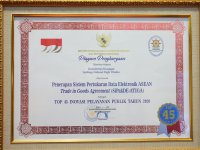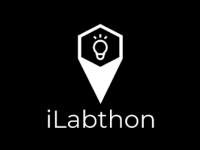The Indonesian Government has initiated “I-Gateway” as Hub for ASEAN Trading Document, enabling electronic data exchange such as certificates of origin to ensure authenticity, reduce paper work and eliminates redundancy. I-Gateway connects both domestically among national agencies and internationally with other countries. It validates and reconciles documents efficiently, to ensure its security as well as business process simplification and harmonization, aiming to higher ease of doing…
Innovation Tag: Cross-Sector Partnerships
Case Study
Barcelona Alumni: A digital science-policy nexus connecting international talent to local challenges

In 2020, Barcelona Alumni’s global virtual platform was launched to leverage the network of international talent educated in Barcelona but residing abroad and contribute to feeding scientific evidence into the local policy-making process. By connecting international experts and local challenges, this first-of-its-kind digital platform provides a pioneering approach to policy-making, making it more crowdsourced, evidence-based, replicable, scalable, accountable, and transparent.
Democratic Society have developed a prototype for a Democratic Climate Model to show the impact of putting citizen at the centre of local climate action. It responds to the gap in pan-European efforts to democratise climate action, providing terminology and models to shift cities from a solely technocratic to a democratic approach to climate resilience. It is evolving ‘climate democracy’ discourse with funders, public sector and civil society by scaling local initiatives to European…
The West Africa Health Informatics Team (WAHIT), based at the West African Health Organization (WAHO), is a team of software developers and health information system experts that provide on-demand technical assistance to countries while building local capacity. Originally founded in the wake of the Ebola outbreak as a proof of concept to test innovative models for building local health informatics capacity, WAHIT evolved into a foundational component of WAHO’s leadership in health in the…
Hundreds of organizations want to create innovation laboratories but do not know how to do it. ILabthon is an event created to foster this creation with the support of the best specialists in the public sector. The event helped to create more than 130 laboratory projects across all regions in Brazil and 3 others countries in a single weekend, boosting the Brazilian public sector's innovation ecosystem.
The Internet's potential to enable micro, small and medium-sized enterprises (MSMEs) to conduct international commercial transactions has yet to be fully realised. With an emphasis on computational approaches to trade policy design and delivery, SUBREI has launched a pilot programme to contribute to an open repository of rules in a digital form: an 'Internet of Rules' (IoR).
The IoR will expand access to cross-border transactions and improve use by people and machines alike.
Procurement organizations have limited resources and decide which procurement solutions to pursue that will bring the greatest benefit to their public sector customers. The Emerging Markets initiative solicits insights directly from the private sector, offering an opportunity to provide ideas that are innovative and forward thinking, to anticipate and proactively meet the needs of multiple governmental entities throughout the country.
The Innovation Compass/Recorder helps to better understand enabling factors for public sector innovation and to support governments in identifying fields for improvement and in sharing good practice across institutions and borders. The Innovation Compass builds on the experience from the Scandinavian region, based on statistical surveys and reflective self-assessment. It was developed by a cross-sector network in Germany, Austria and Switzerland.
As space missions increase in duration and distance, it will not be possible to bring all of the required crew consumables (air, water and food). The Deep Space Food Challenge incentivizes innovators globally to advance the field of food production technologies to meet both space exploration and terrestrial needs. This Challenge represents the first of its kind international collaboration between NASA, Centennial Challenges Program (CCP), the Canadian Space Agency and Impact Canada.
The imIN-hub aims to envision health services for the citizen of tomorrow. It focuses on developing and adapting towards innovation products, services and training in the areas of eHealth, ICT, Mobile, AI, and Robotics. The project aims to take targeted actions to achieve a digital health model closer to citizens at every stage of their life. The imIN-hub seeks to be the backbone of health innovation in Portugal while working on internal innovation of the national public health company (SPMS)…




